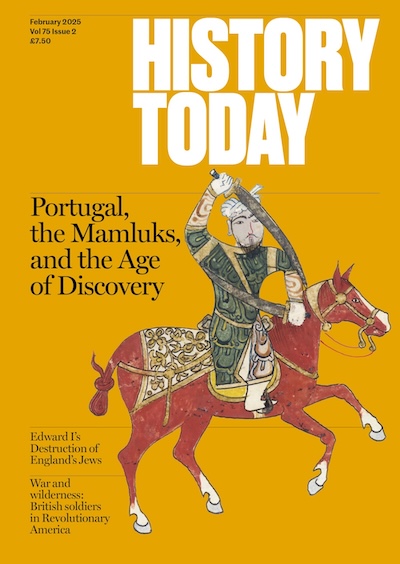The Nile’s Source Discovered
John Hanning Speke discovered the source of the Nile on August 3rd, 1858.

John Hanning Speke, an army officer’s son from the West Country, was commissioned into the army of the East India Company in 1844 at the age of seventeen. In 1854 he eagerly joined an expedition to east Africa under the command of Captain Richard Burton, who had returned from his sensational visit to Mecca disguised as an Arab pilgrim the year before. The explorers came under a fierce attack by tribesmen at Berbera and both Speke and Burton were wounded, Speke almost fatally. Rightly or wrongly, Speke believed that Burton had questioned his courage in this incident. It rankled with him all his life and underlay a growing antipathy between the two men, who were in any case extremely unalike. Compared with the brilliant and wildly unconventional Burton, Jack Speke seemed a plodder.
Despite this, however, in 1856 Speke joined Burton on another expedition to east Africa, organized by the Royal Geographical Society. The purpose was supposedly to follow up rumours of a great lake in the interior, the so-called Sea of Ujiji, but in reality the search was on for the source of the Nile.
The expedition moved inland from the coast opposite Zanzibar and, in February 1858, it discovered Lake Tanganyika. After three months exploring the lake, both Burton and Speke were ill and the expedition started back towards the coast. However, they had heard tell of another huge lake to the north of Tanganyika. Speke, who had by now recovered, set off in command of a small party and in August came upon what he later described as ‘a vast expanse’ of ‘the pale-blue waters’ of the northern lake. He named it Lake Victoria and believed, correctly, that it was the source of the Nile.
Burton would not accept Speke’s claim to have discovered the Nile’s source, for which he felt there was no convincing evidence. He believed that the true source was more likely to be ‘his’ Lake Tanganyika. But Speke got back to England in May 1859 before Burton, and announced that he had found the source of the Nile. Burton felt belittled and was infuriated by Speke’s account of the expedition in Blackwood’s Edinburgh Magazine. The breach between them was never healed.
The Royal Geographical Society sent Speke back to Africa to substantiate his Nile claims. The expedition left the coast in September 1860 but there were difficulties because its two interpreters quarrelled, which complicated the negotiations with the local rulers through whose territories the expedition had to pass and with the Arab traders from whom it needed supplies. There were long delays before the explorers reached Gondokoro, 750 miles south of Khartoum, in February 1862. After much politicking and intrigue the powerful king of Buganda, Mutesa, allowed Speke to proceed to the point on Lake Victoria where the White Nile issues from the lake. He reached what he named Ripon Falls on July 28th 1862. He was thirty-five and this was the crowning point of his life.
Unfortunately, Speke did not follow the Nile stream northwards as closely as he might have, which enabled doubters to question whether ‘his’ river really was the Nile. Speke got back to Gondokoro in February 1863 and by May was in Cairo where he announced to the waiting world that the question of the source of the Nile was now ‘settled’.
Returning to London to address a special meeting of the Royal Geographical Society, Speke was the hero of the hour. In December 1863 he published his book, The Journal of the Discovery of the Source of the Nile. Unfortunately for him, it had been badly edited and appeared both inaccurate and disagreeably boastful. In 1864 he published What Led to the Discovery of the Source of the Nile about the earlier expedition, which also did his reputation no good. Burton was still refusing to admit that Speke had discovered the source of the Nile, the two men were completely at loggerheads and a debate between them was scheduled at the British Association for September 16th. Speke went shooting partridges in Wiltshire the day before, climbed over a wall with his gun cocked and shot himself. His death was probably an accident, but word spread that he had committed suicide because he was too scared to face Burton in debate.
Speke was thirty-seven when he died. It was not until years later that he was proved to have been right and that Lake Victoria Nyanza is the source of the White Nile (though the lake has several feeder rivers).




